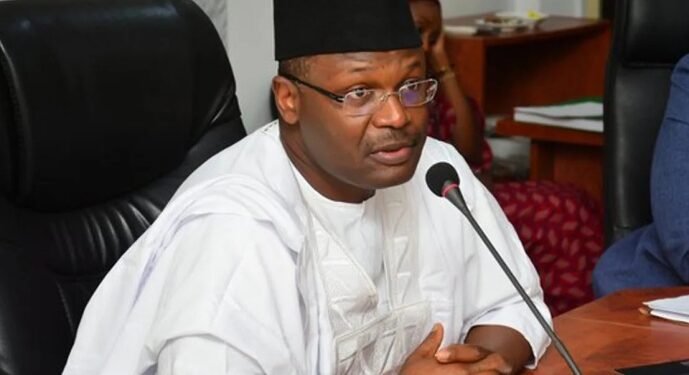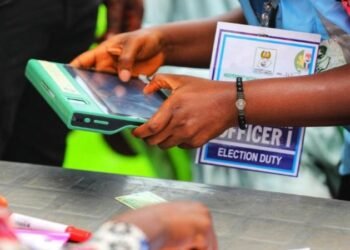The Bimodal Voter Accreditation System (BVAS) machines have never failed and will not fail Nigerians at the 2023 general elections.
The declaration was made in Abuja on Saturday by INEC chairman, Prof. Mahmood Yakubu, while assessing activities at polling units in the FCT where mock accreditation of voters were held using the BVAS machines.
“In the two polling units we have visited so far, there is no report of failure; the machines have performed optimally and this is the report we are getting so far nationwide.
“We have also made contingency arrangements like we will do on Election Day, that there is a spare machine in case and in the unlikely event of a malfunction we will be able to respond and fix the machines’’ he said.
Yakubu explained that from the mock exercise witnessed, it took less than 30 seconds to accredit a voter adding that this was the report INEC was getting from all the selected polling units nationwide.
“The speed is good and also the authentication is good.
“The BVAS has never failed anywhere,’’ he stressed.
Yakubu said also that no incident of failure had been recorded and INEC was hoping and praying having worked very hard that on Feb. 25 and March 11, the machines would also perform optimally.
He assured that accreditation and electronic transmission of results would be done seamlessly during the elections.
“I would not like to comment on the Osun issue because it is a matter in court and is sub-judice.
“However, in every situation the Commission learns, carries the experience from what has happened to improve the processes for the next election.
“We have learned some lessons from what happened and one of the lessons is to be able to transmit the accreditation data,’’ he said.
Yakubu also assured on Saturday that at the oncoming general elections, INEC would transmit both the results on Election Day and the accreditation figures simultaneously so that the two would rhyme.
He said that INEC created a new Uniform Resource Locator (URL) on its Results Viewing Portal where both the accreditation and results could be viewed.
“We are going to transmit both the accreditation figures and the results on Election Day.
“We are giving assurance to Nigerians that on Election Day, both the accredited data and the actual votes cast will be transmitted simultaneously and accurately,’’ the INEC boss stressed.
Yakubu said the mock exercise was organised to further test the integrity of the machines to be used on Election Days.
He said it needed to test the machines in the field ahead of the election bearing in mind that this was the first time of deploying the machines nationwide.
He explained that for the mock exercise, INEC identified 436 polling units nationwide on the equality of states and on the basis of two local governments per senatorial district.
Four polling units were used in each local government area where the exercise held, making a total of 16 polling units per state.
“Voters are verified using their PVCs and then authenticated using their fingerprint or facial recognition on the machines on the basis of which they will be given the ballot papers on Election Day after successful accreditation.
A governorship election petition tribunal nullified the election of Osun’s Gov. Ademola Adeleke on Jan. 27 as a result of over-voting in 10 local government areas of the state at the July 16, 2022 election.
The tribunal asked INEC to withdraw the Certificate of Return issued to Adeleke of the Peoples Democratic Party (PDP) and issue same to Alhaji Gboyega Oyetola of the All Progressives Congress as winner of the election.
It ruled that If the ballots from the polling units where over-voting took place were withdrawn, Oyetola had more votes than Adeleke. Adeleke has since said he would appeal against the tribunal’s ruling.
(NAN)









